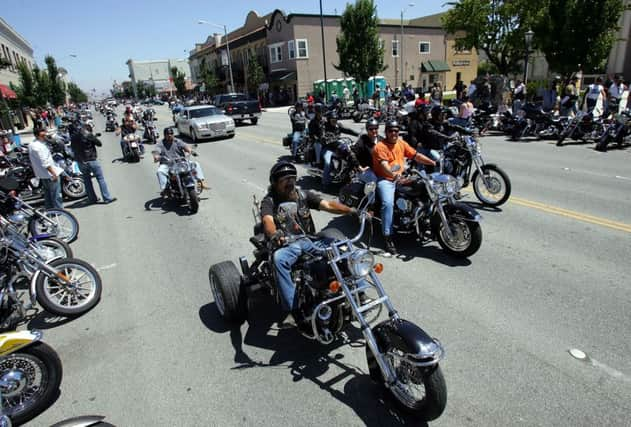Wrong uns in the Commons: Politics like biker gang


Psychologists have been baffled as to why differences in affiliation get so heated when discussions about the merits of say the Beatles and the Rolling Stones or Iron Man and the Hulk are usually perfectly civil.
Now, research shows that following a political party is more like being in a biker gang than a debate club, and goes back to the local coalitions of prehistoric cavemen.
Advertisement
Hide AdAdvertisement
Hide AdThe findings, published in the journal Cognition, could explain the unrest that broke out in Scotland and England following the vote for independence and the General Election.
Evolutionary psychologist Dr David Pietraszewski and colleagues at the University of California, Santa Barbara said the human brain categorises political parties below the level of conscious awareness.
He said: “We found differences in political opinions engage the brain’s evolved circuitry for tracking alliances and coalitions.
“When people express opinions that reflect the views of different political parties, our minds automatically and spontaneously assign them to rival coalitions. As far as our brains are concerned, political affiliation is viewed more like membership in a gang or clique than as a dispassionate philosophical stance.”
As this evolved system collects information about an individual’s political alliances, it begins to ignore other possible cues about who is allied with whom, such as race.
Dr Pietraszewski, now at the Max Planck Institute in Berlin, explained: “This decline in the mind’s tendency to categorise people by their race happens when race does not predict alliances, but other cues do.
“It is a telltale sign that our minds are treating political opinions as markers of membership in a coalition.”
Professor John Tooby said human brains are more designed to attend to coalition than race, which is why successful politicians such as Benjamin Disraeli, Arnold Schwarzenegger and Barack Obama need not be ethnically the same as the majority of their supporters.
Advertisement
Hide AdAdvertisement
Hide AdHuman beings come from an evolutionary history that included conflict among groups or factions, and it was important to know, if a dispute were to break out, which individuals were with “us” and which with “them”.
Prof Tooby said: “While the world is full of social categories like athletes, plumbers, the elderly or nailbiters, only a few categories are interpreted by the mind as coalitions – sets of individuals inclined to act together, and support each other against rivals. In the small social world of our ancestors, the political was personal.”